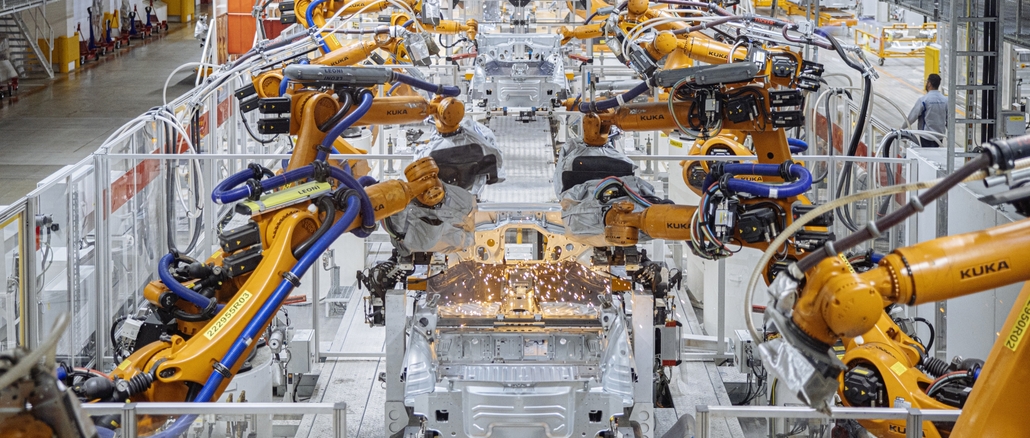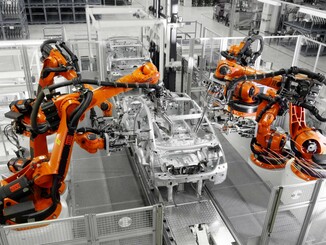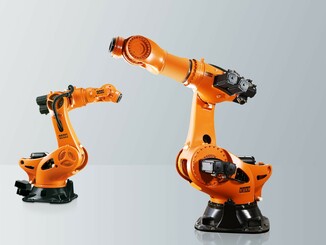
Volkswagen starts production of its second all-electric vehicle after the ID.3, the ID.4. In Zwickau, up to 300,000 e-vehicles from the Volkswagen, Audi and Seat brands are to be produced in 2021 alone on the basis of the Modular Electrification Toolkit (MEB). More than 1700 Kuka robots of the type KR Quantec and KR Fortec, some of them on linear traversing axes of the type KL 4000, are involved in body construction and assembly.
For more than two years, Kuka has been working with the Volkswagen automotive group at the Zwickau plant on the all-electric vehicles ID.3, ID.4 and other models. It was recently announced that the ID.4 is now going into series production. For the more than 1700 Kuka robots in Zwickau, this means a lot of work.
The Kuka robots are used in Zwickau in the body shop and in assembly. Especially KR Quantec and KR Fortec are in the factory, but also LBR iiwa are present. Kuka robots also play a role in the scalable battery system of the MEB vehicles, which have a range of over 500 kilometers and are manufactured at the Braunschweig site. “We are delighted to be part of Germany’s first all-electric car factory. Together with Volkswagen, we are working to advance electromobility and the future of the automotive industry,” says Peter Mohnen, CEO of Kuka AG.
Until the middle of this year, the VW Golf Variant with combustion engine was also produced in Zwickau. But that’s over now, from now on only electric vehicles will roll off the production line. The plant was completely converted to electromobility by the end of 2020 with investments of around 1.2 billion euros. In the first all-electric production year, 2021, around 300,000 e-cars are to be produced in Zwickau on an MEB basis, and from 2022 even up to 330,000 units per year. Production of the ID.3, which is already available to customers, and the new ID.4 will not be the only thing to happen in Zwickau: The plant is geared to a total of six different electric models from the Volkswagen, Audi and Seat brands.
Web:
www.kuka.com




